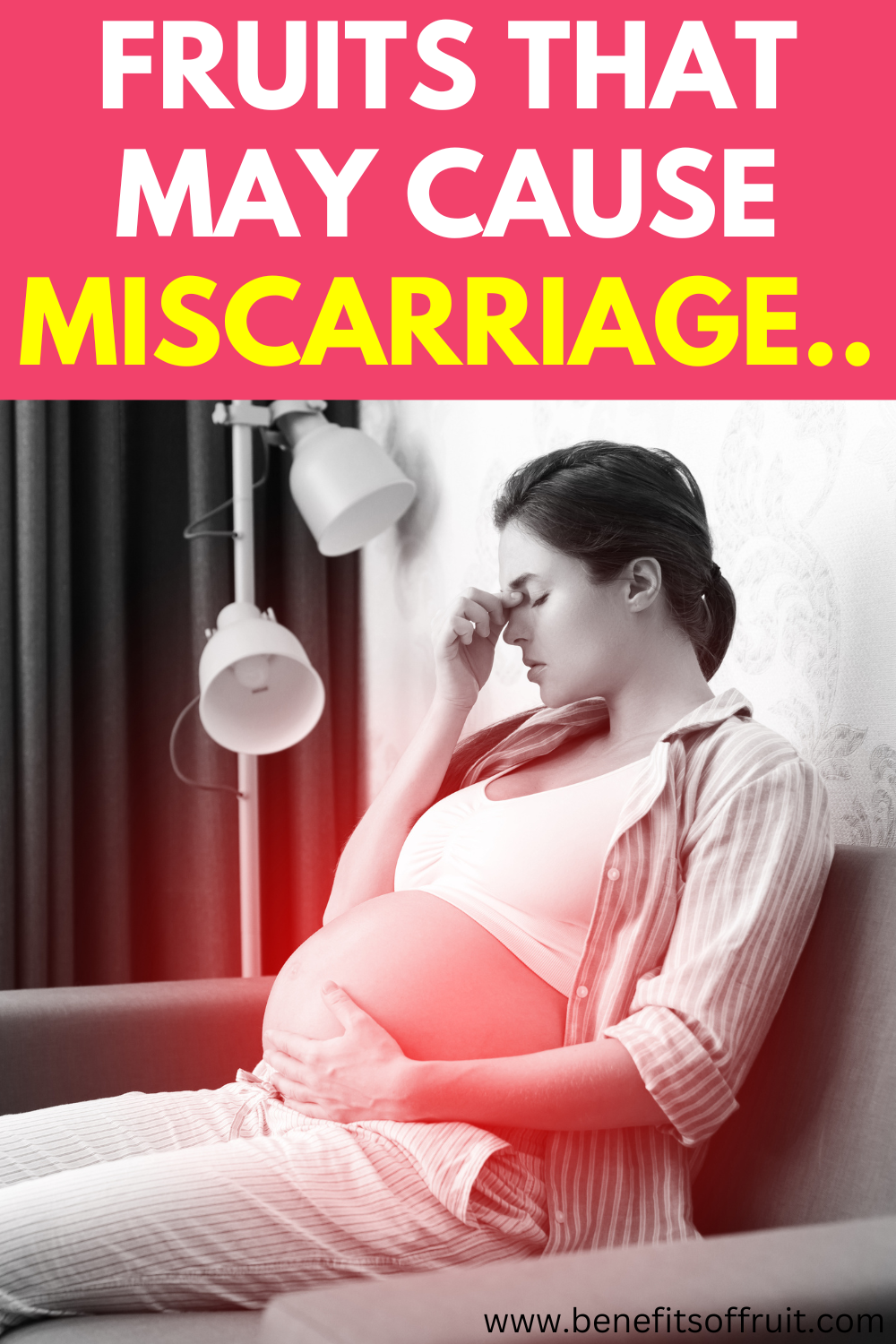Pregnancy is a critical time when every bite counts, not only for the health of the mother but also for the developing baby. While fruits are an essential part of a balanced diet due to their vitamins, minerals, and fibers, certain fruits should be approached with caution during pregnancy. This article aims to shed light on which fruits to limit or avoid to minimize the risk of miscarriage. It’s important to note that while the fruits listed below may pose risks, dietary recommendations should be personalized and discussed with a healthcare provider.
Understanding Miscarriage
Miscarriage, the spontaneous loss of a pregnancy before the 20th week, is a common occurrence that affects many expecting mothers. While genetic factors are the most frequent cause, environmental factors, including diet, can also play a significant role. Certain substances found in foods can potentially increase the risk of miscarriage or harm fetal development.
Fruits Commonly Consumed During Pregnancy
Fruits such as apples, bananas, and oranges are popular among pregnant women due to their beneficial nutrients. However, not all fruits are equally safe. Here we discuss some fruits that might need to be avoided or consumed with caution during pregnancy due to their potential risks.
Fruits To Avoid During Pregnancy That Cause Miscarriage
Papaya
Unripe and semi-ripe papayas are rich in latex, a substance that can trigger uterine contractions. Latex acts similarly to the hormone prostaglandin and oxytocin, which are used medically to induce labor. Studies suggest that consuming unripe papaya in early pregnancy can lead to undesirable outcomes, including premature labor or miscarriage. While ripe papaya is generally considered safe, it is best to avoid any papaya that has any traces of green on the skin.
Pineapple
This tropical fruit contains bromelain, an enzyme that can soften the cervix and potentially cause early labor if consumed in large quantities. Bromelain’s effect on the cervix might lead to complications such as bleeding or miscarriage. Most doctors advise pregnant women to avoid eating large amounts of pineapple, especially during the early stages of pregnancy.
Grapes
Grapes, particularly dark-skinned varieties, contain resveratrol, a compound that has been touted for its health benefits but might be risky during pregnancy. Some studies suggest that resveratrol can increase internal body heat, which is potentially harmful during pregnancy. Moreover, grapes are often treated with pesticides that can accumulate and cause toxicity if not adequately washed. Due to these factors, some health practitioners recommend limiting grape consumption during pregnancy, particularly in the first trimester.
Dates
Although dates are highly nutritious and commonly recommended during the later stages of pregnancy to promote cervical dilation before labor, consuming them in early pregnancy might not be advisable. Their high sugar content and potential to increase body heat can be a concern. It’s wise to consult with a healthcare provider before incorporating dates into a pregnancy diet, especially in the first and second trimesters.
Nutritional Alternatives
For pregnant women looking to avoid these fruits, there are numerous safer alternatives that can provide similar nutritional benefits. For example, mangoes and peaches can be good substitutes for providing vitamin C and fiber, without the risks associated with the fruits mentioned above. Berries, such as blueberries and strawberries, are also excellent choices due to their high antioxidant content, which is beneficial for both the mother’s and baby’s health. These fruits are not only safe but also beneficial for maintaining a balanced and nutritious pregnancy diet.
